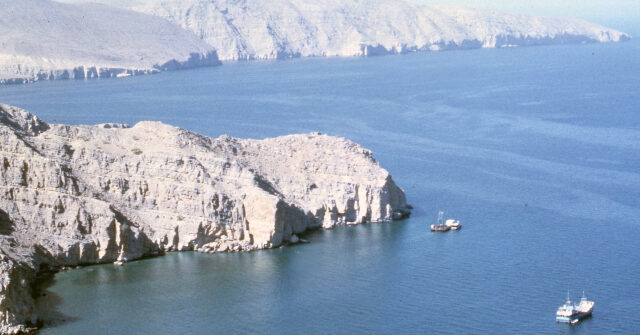The Baltic and International Maritime Council (BIMCO), one of the world’s largest shipping organizations, warned on Sunday that threats to commercial vessels around the Arabian Peninsula are growing after U.S. airstrikes against Iran’s nuclear weapons program.
BIMCO head of security Jakob Larsen said the Iranians might try to get revenge for the airstrikes by attacking American warships in the region, or civilian vessels affiliated with either the U.S. or Israel, either directly or through their terrorist proxies.
“The Houthi threat against shipping in the Red Sea and Gulf of Aden has also gone up. The Houthis now threaten merchant ships with affiliation to Israel or the U.S., but attacks against merchant ships with other affiliations cannot be ruled out,” he said.
Larsen said the Iranians could attack ships in the Strait of Hormuz with drones and missiles, and could also attempt laying mines in that vital sea passage.
Mines would be more difficult to counter than shooting down Iranian aircraft, intercepting anti-ship missiles, or sinking an Iranian naval blockade, but they would carry “the risk to Iran-affiliated commercial ships and the risk of environmental disaster in case a ship is damaged.”
“Given the Iranian threat to U.S. military bases in the region, availability of warships for protection of commercial shipping is probably limited, especially for commercial ships with no affiliation to the U.S. or Israel,” Larsen added.
“Before the U.S. attack, the impact on shipping patterns was limited. Now, after the U.S. attack, we have indications that the number of ships passing is reducing,” he said. “If we begin to see Iranian attacks on shipping, it will most likely further reduce the number of ships transiting through the [Strait of Hormuz].”
“The pace at which tankers are entering the Strait of Hormuz has definitely slowed. We have indications from shippers that they are putting tankers and vessels on standby, so they are waiting for an opportune moment to enter the Strait,” agreed Andy Critchlow of S&P Global Commodity Insights.
Critchlow said suppliers of liquified natural gas (LNG) are advising tankers to avoid “loitering” in the Persian Gulf, where they might be vulnerable to Iranian attacks. Ship operators are reportedly arranging brief pauses before vessels enter the Persian Gulf or Strait of Hormuz so ships can pass through the area as quickly as possible.
Shipping giant Hapag-Lloyd said on Monday it will “closely monitor the current developments in the region,” but “at present, our vessels continue to transit the Strait of Hormuz.”
“The safety and well-being of our crews and ships remain our highest priority. We are actively evaluating potential risks and stand ready to adjust our operations should conditions change,” the company said.
Maersk also said its ships will continue sailing through the Strait of Hormuz for the time being.
“We continue to monitor the situation very closely, especially considering the U.S. involvement in the conflict,” the company said.
Industry analysts said insurance costs would probably rise due to fears of Iranian terrorism, but shipping would probably continue unless an attack takes place.
At least two supertankers reportedly performed “U-turns” to avoid entering the Strait of Hormuz immediately after the U.S. airstrikes, but they evidently changed their minds and returned to the strait. One of the tankers had almost reached the far end of the strait by Monday morning.
The Iranian parliament on Sunday voted to approve blockading the Strait of Hormuz, a move that would have a serious impact on the global economy if Tehran follows through.
Secretary of State Marco Rubio on Sunday said it would be a “terrible mistake” and “economic suicide” for Iran to close the strait, and he predicted the entire world would see it as a “massive escalation that would merit a response.”
Rubio suggested China might want to use whatever sway it has with the Iranian government to keep the Strait of Hormuz open. Instead, the Chinese government warned its own ships to exercise caution in the region.
The China Shipowner’s Association (CSA), which is controlled by the state Ministry of Transportation, posted a notice on Monday that instructed all companies to report the names, identification numbers, crew and cargo of every ship transiting the Strait of Hormuz, the Persian Gulf, and the Gulf of Oman.
“The ongoing tensions in the Red Sea have had widespread and profound impacts on shipping safety in surrounding waters,” the CSA notice said.
Read the full article here
